Interview with Sharon Fleming
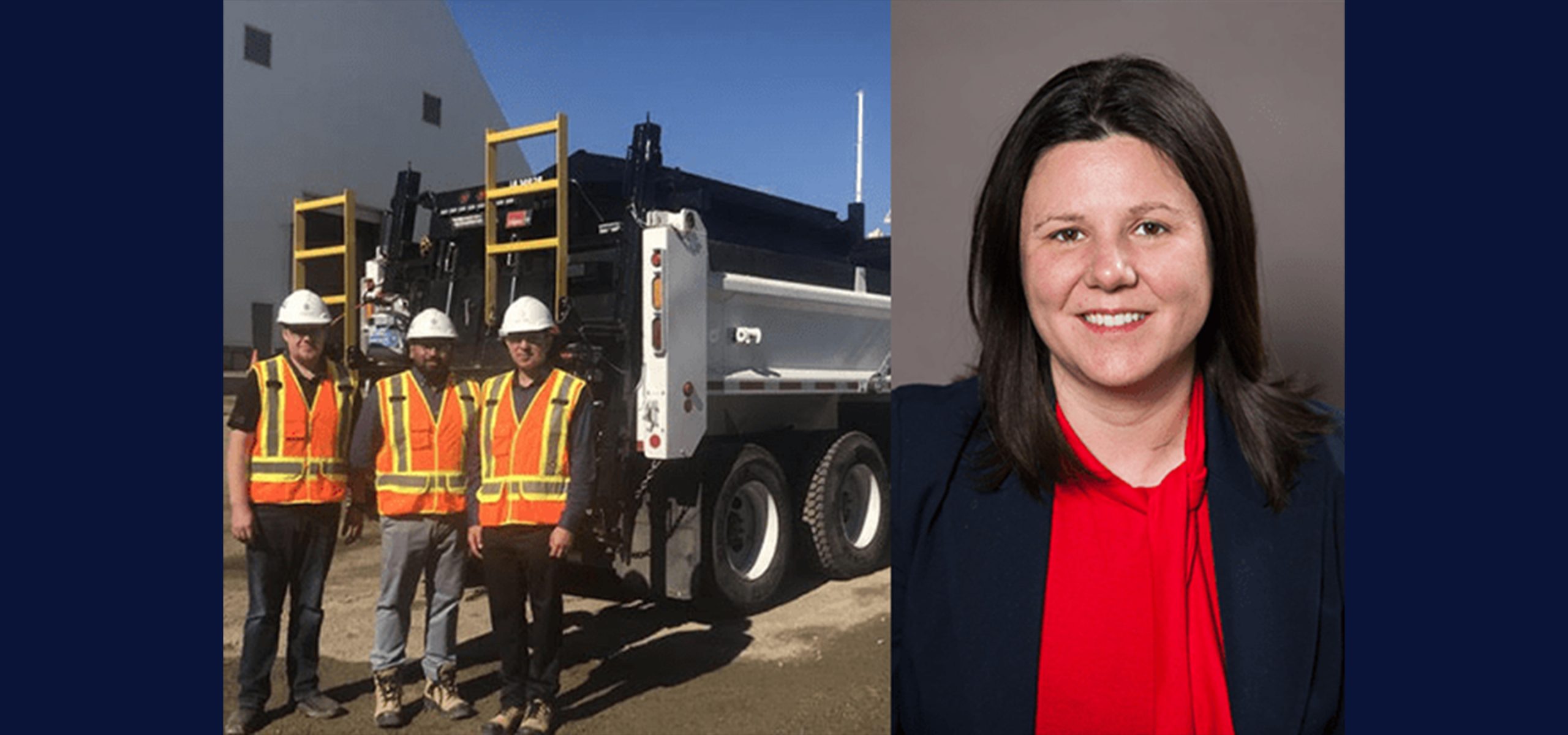
City of Calgary Garners International Recognition
The last few years have seen the City of Calgary roll out innovative solutions to optimize its fleet management while reducing its environmental impact. And people are starting to take note. We sat down with the city’s Director of Fleet Services, Sharon Fleming, to talk sustainable strategy and forward thinking projects.
What is your role as the City of Calgary’s Director of Fleet Services?
I oversee a team of over 200 staff who ensure our 1000+ heavy trucks, 1600+ light vehicles, and 1300+ motorized equipment are safe, cost effective, available and environmentally conscious. Fleet Services enable the delivery of city services such as waste and recycling pick-up, road maintenance, water services, etc., through the life cycle management of vehicles, equipment and components. This includes the acquisition, maintenance and disposal of these assets. It also includes engineering, manufacturing and safety governance support.
My role as Director is to provide strategic oversight and direction for the effective management of the city’s fleet. The most interesting part of my job is the ability to keep the City of Calgary moving by exploring new, innovative approaches and solutions.
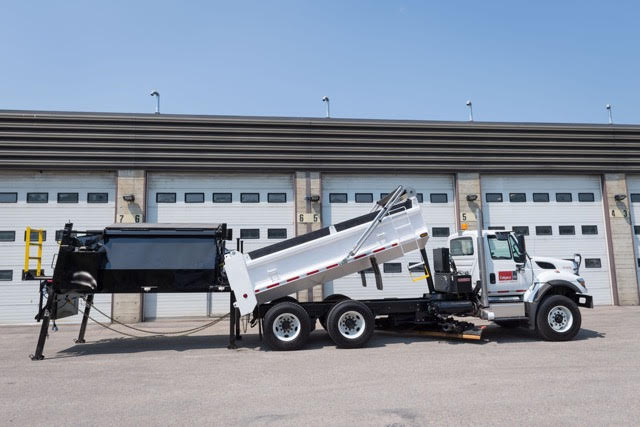
What are some of the practices and technologies that the City of Calgary has implemented to reduce its fleet’s greenhouse gas (GHG) emissions?
The City of Calgary’s fleet is responsible for 20% of the city’s total GHG emissions. As part of our commitment to the city’s Climate Resilience Strategy, we are continuously evaluating current market offerings, as well as future technology, including electric vehicles. We are in particular looking at options that will sustain operations in Calgary’s extreme weather conditions. Working with our customer business units to review their fleet specific operational requirements, we are also identifying opportunities to right-size vehicles, relinquish or share units with low utilization, and encourage the purchase of units that support the City of Calgary’s environmental commitments.
The City of Calgary plans to invest in a SMART Fleet program. What are the intended purposes, and what does it entail?
Our SMART Fleet program establishes a plan for improving green and safe driving practices for operators, a car share program to help increase fleet utilization, and other improvements to better leverage the fleet’s work management system and improve data quality and reliability. The program has three main projects:
- Flex Fleet is a project aimed to improve fleet utilization by implementing a specialized car share solution. This would be a pilot project for 10-25 vehicles by 2020.
- The e-Fleet project will build on existing capabilities of M5 software to improve efficiencies and reduce manual, paper-based processes within maintenance operations.
- The Safe Fleet project will look for innovative ways to improve the fleet’s environmental performance, safe driving and data integrity by implementing a governance model and optimizing existing technology.
Earlier this year, the City of Calgary received a Future Fleet Award for most innovative fleet management strategy at the London Future Fleet Forum. What was this recognition for and what does it mean for the city?
The Future Fleet Awards recognize the achievements of local authorities, public sector contractors and individuals in the fields of safety, innovation and sustainability in fleet management. The City of Calgary won the most innovative fleet management strategy award for our patented asphalt carrier and recycler built on a standardized multi-purpose vehicle platform, developed entirely in house. It is projected to save millions in capital and operating costs while diverting tonnes of asphalt waste from landfill.
We’re honoured to have received this recognition, which validates our team’s multi-year efforts to achieve efficiencies through innovation and reduce operational costs. By licensing this design, we hope many other municipalities are able to benefit as well.
What new strategies does the City of Calgary wish to explore in the upcoming years in its continuous effort toward a greener fleet?
We are conducting an alternate fuel evaluation and a pilot project with waste and recycling heavy vehicles to test other fuel possibilities such as compressed natural gas and electric. We will review the outcomes of the fuel source evaluation project this year, with the hope of running the pilot in 2020. Also, we are currently reviewing our anti-idling policy and are evaluating methods and processes to improve monitoring and reporting to curb the behavior of unnecessary idling.
Finally, we are working on the development of new prototypes. So stay tuned as more exciting projects will be forthcoming.
Continue reading on this subject

The challenges of designing a 40-tonne, 100% electric mining vehicle for open-pit mines
Partnerships and implications The partners involved in the development of a 100% electric Quebec mining vehicle were all eager to be involved with the project from the outset, for a variety of reasons. NRC’s Eddy Zuppel explained their contribution: “Before starting the project, it was important to model and simulate the vehicle’s route in order […]
Read more
Energy efficiency: Financial support to put your ideas into action
Leading a company involves balancing several priorities at the same time. Energy efficiency? It’s an important issue—one of many! What if we gave you what you need to make energy efficiency a driving force behind your company’s performance and profitability? The good news is, Hydro-Québec offers financial assistance and guidance to help you balance performance and energy efficiency.
Read more
My Consumption Profile: data that lets you strategically manage your electricity use
Companies have a critical role to play in the energy transition. Knowing that energy efficiency factors big into profitability, your organization will benefit from strategically managing its electricity use. The key? Your data!
Read more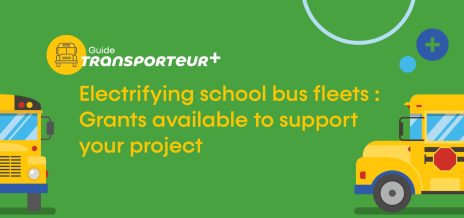
Electrifying school bus fleets : Grants available to support your project
In this series of articles, we demystify the key steps of converting your school bus fleet to electric power thanks to the Transporteur+ guide. This guide aims to provide easy and direct access to resources to clarify the steps, issues, conditions and facilitating measures for a successful transition to electrification.
Read more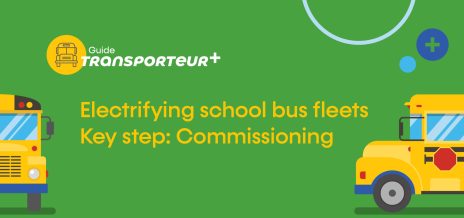
Electrifying school bus fleets | Key step : Comissioning
In this series of articles, we demystify the key steps of converting your school bus fleet to electric power thanks to the Transporteur+ guide. This guide aims to provide easy and direct access to resources to clarify the steps, issues, conditions and facilitating measures for a successful transition to electrification.
Read more
FINANCING | $50 million from Finalta Capital in non-dilutive financing dedicated to the Electric and Smart Transportation sector
Fast growing, innovative companies from the electric and smart transportation (EST) sector in Québec take advantage of the $50 million in funding dedicated to the EST ecosystem by Finalta Capital, one of Canada’s largest funds specialized in non-dilutive tax credit and government grant financing, announced in March 2023 as part of the Impulsion conference, the International EST Summit organized by Propulsion Québec.
Read more
Demand response: Save money by using hydro at the right times
If you could lower your company's hydro bill while contributing to the collective effort to support Quebec’s energy transition, would you? Yes, most likely! How? By curbing power demand for buildings and equipment during peak demand events.
Read more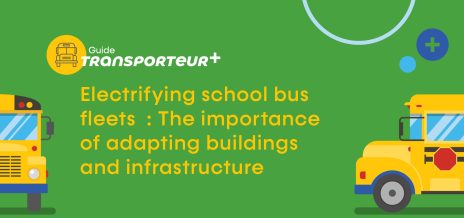
Electrifying school bus fleets : The importance of adapting buildings and infrastructure
In this series of articles, we demystify the key steps of converting your school bus fleet to electric power thanks to the Transporteur+ guide. This guide aims to provide easy and direct access to resources to clarify the steps, issues, conditions and facilitating measures for a successful transition to electrification.
Read more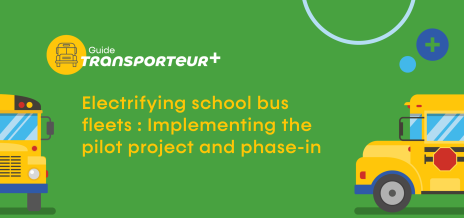
Electrifying school bus fleets : Implementing the pilot project and phase-in
In this series of articles, we demystify the key steps of converting your school bus fleet to electric power thanks to the Transporteur+ guide. This guide aims to provide easy and direct access to resources to clarify the steps, issues, conditions and facilitating measures for a successful transition to electrification
Read more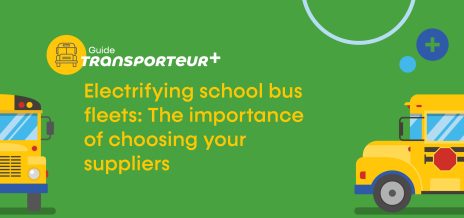
Electrifying school bus fleets: The importance of choosing your suppliers
In this series of articles, we demystify the key steps of converting your school bus fleet to electric power thanks to the Transporteur+ guide. This guide aims to provide easy and direct access to resources to clarify the steps, issues, conditions and facilitating measures for a successful transition to electrification.
Read more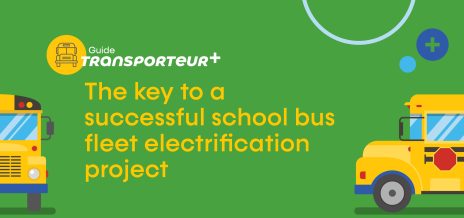
The key to a successful school bus fleet electrification project
In this series of articles, we demystify the key steps of converting your school bus fleet to electric power thanks to the Transporteur+ guide. This guide aims to provide easy and direct access to resources to clarify the steps, issues, conditions and facilitating measures for a successful transition to electrification.
Read more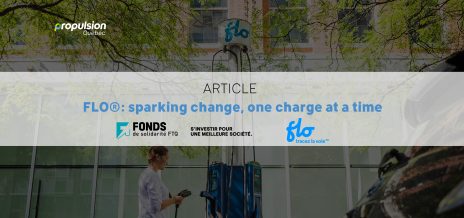
FLO®: sparking change, one charge at a time
FLO became a leader in electric vehicle (EV) charging in North America by integrating the process from start to finish: manufacturing charging stations, developing software and managing its network. To stay ahead of the curve in a fast-moving, innovation-driven market, the company turned to the Fonds de solidarité FTQ to support its growth.
Read more




